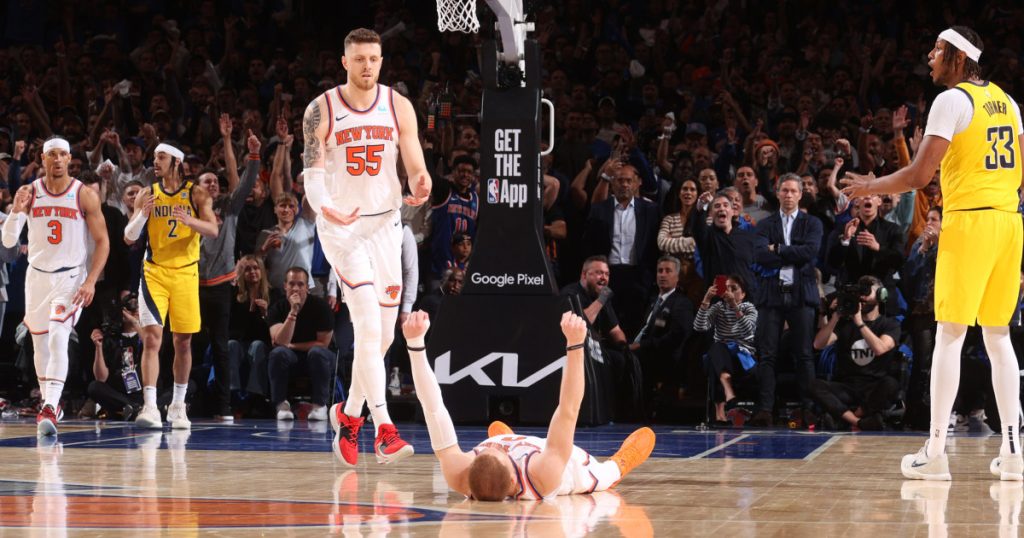Referees made an incorrect call during the Indiana Pacers game against the New York Knicks on Monday night, resulting in a late kicked ball violation that favored the Knicks. With 52 seconds left in the tied game, Aaron Nesmith appeared to knock away a pass from Jalen Brunson to Donte DiVincenzo, but referees called it a kicked ball, allowing the Knicks to retain possession. However, a postgame review revealed that the ball had hit the defender’s hand, making it a legal play. The Pacers, who were unable to challenge the call, ultimately lost Game 1 of the Eastern Conference semifinals to the Knicks, who took the lead shortly after the controversial call.
Crew chief Zach Zarba admitted after the game that the call on the kicked ball was incorrect, as it was determined to have hit the defender’s hand rather than his foot. Zarba clarified that challenges can only be used for fouls, goaltending calls, and out-of-bounds calls, not for ball possession calls like the one in question. Despite feeling that another call later in the game went against them, with Myles Turner being called for an offensive foul on a pick that resulted in a turnover, the Pacers were unable to challenge this call either. Turner expressed frustration at the outcome, emphasizing the need for players to decide the game’s outcome rather than leaving it in the hands of referees.
Despite the frustration over the missed call and the subsequent loss, the Pacers did successfully challenge a foul called on Tyrese Haliburton with the game tied at 113-all late in the fourth quarter. The challenge led to the foul being overturned, giving the Pacers an opportunity to maintain possession and potentially take the lead. This successful challenge highlighted the importance of utilizing the challenge system effectively to correct errors made by officials during crucial moments in a game. While challenges can be a valuable tool for teams to contest calls, they are limited to specific types of calls and cannot be used for every instance where a team feels a call is incorrect.
The outcome of the game underscored the significance of maintaining composure and accountability amidst controversial calls and challenging situations in high-stakes playoff games. Turner’s comments regarding the need for players to take ownership and responsibility for the outcome of the game highlighted the importance of maintaining focus and discipline under pressure. While calls made by referees can have a significant impact on the outcome of a game, it is ultimately up to the players to adapt and respond effectively to adverse circumstances in order to secure victories and advance in the postseason. The Pacers’ ability to challenge calls and overturn them in their favor demonstrated the importance of strategic decision-making and effective use of tools available to teams within the rules of the game.
Overall, the controversy surrounding the incorrect call on the kicked ball during the Pacers-Knicks game shed light on the complexities and challenges of officiating in professional sports. Human error is an inevitable part of any sport, but mechanisms such as the challenge system exist to help address and rectify mistakes made during games. Moving forward, teams and players must continue to adapt and respond to unexpected circumstances with resilience and determination, focusing on controlling what they can influence rather than dwelling on calls beyond their control. The Pacers’ experience in Game 1 of the Eastern Conference semifinals serves as a reminder of the importance of maintaining composure, utilizing available resources, and taking accountability in the face of adversity in the pursuit of success in competitive sports.


